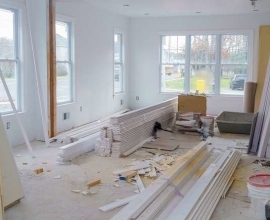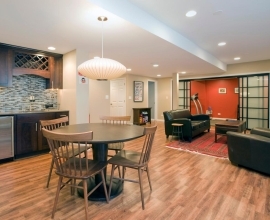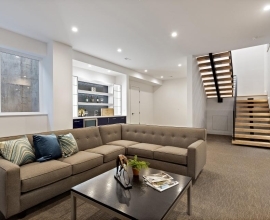COVID-19, surge in ‘renovictions,’ complicate Montreal’s traditional moving day
MONTREAL — Quebec’s traditional July 1 moving day has always involved a certain amount of chaos, as thousands of people simultaneously pack up their belongings and move to new homes.
But this year, advocates say the hunt for a new apartment has been more difficult than ever, as COVID-19 exacerbates a housing crisis brought on by low vacancies, rising rents and a wave of tenants being displaced by landlords hoping to retake their dwellings or capitalize on their property values.
Veronique Laflamme, the spokeswoman for the housing rights’ group FRAPRU, says some 1,200 households across the province have called different organizations seeking help in finding a new place to live — twice as many as last year. Of those, at least 322 had yet to sign a new lease on the eve of moving day.
In a phone interview, she said COVID-19 has not only led to major job losses but also caused hardship for those already struggling to pay their rents, including those on social assistance or in low-income jobs.
Those vulnerable people “risk being adding to the ranks of the unemployed who lost their jobs and find themselves in a greatly vulnerable situation.”
She said the pandemic made viewing apartments more difficult, especially in hard-hit Montreal, where the vacancy rate sits at a 15-year low of 1.5 per cent, and affordable apartments are becoming scarce.
A recent study compiled by a renters’ rights group, the Regroupement des comites logement et associations de locataires, found that provincially the prices listed online for apartments available for rent averaged $1,044 per month — some 30 per cent higher than the average rent being paid by current tenants, according to the Canadian Mortgage and Housing Corporation’s numbers. In Montreal, the figure was 43 per cent higher.
Laflamme said nearly half of those who called for aid this year are leaving their previous apartments unwillingly. Among those forced out, she said, are a growing number of so-called “renovictions,” when tenants are displaced because of major renovations, and rents are subsequently hiked.
Collin Kenwood, a 44-year-old Montreal renter, says he’s well aware of the problem.
Kenwood, who is disabled, said he thought he’d gotten lucky last year to find a one-bedroom basement apartment he could afford for himself and his dog in Montreal’s central Plateau-Mont-Royal neighbourhood, but the situation has since become a nightmare.
Video provided by Kenwood shows water dripping from the ceiling of the bathroom, which he said caused chunks of ceiling to fall. He says the building’s landlord has consistently dragged his feet on repairs, instead pressuring him and other tenants to find another place to live so major renovations can be carried out.
“He’s trying to muscle people out,” said Kenwood, who has filed a formal notice with the province’s landlord and tenant rental board, asking the owner to address a leak in the ceiling, a deteriorating living room wall and a broken stove.
But in a response to Kenwood’s filings, which The Canadian Press has viewed, the landlord accuses Kenwood of violating several rules, including keeping a dog despite a no-pet clause, blocking access to rooms in the building, causing other tenants to leave the building and storing property without having access to a storage unit.
A document Kenwood says is his lease does not specify that he cannot have animals, and he says he had a verbal agreement to store his belongings in the building. He says the accusations are unfounded.
Source: https://bit.ly/31UP5zb







